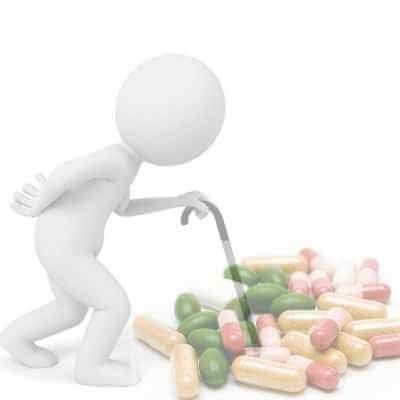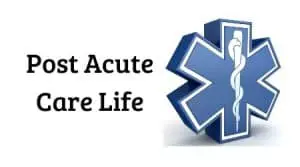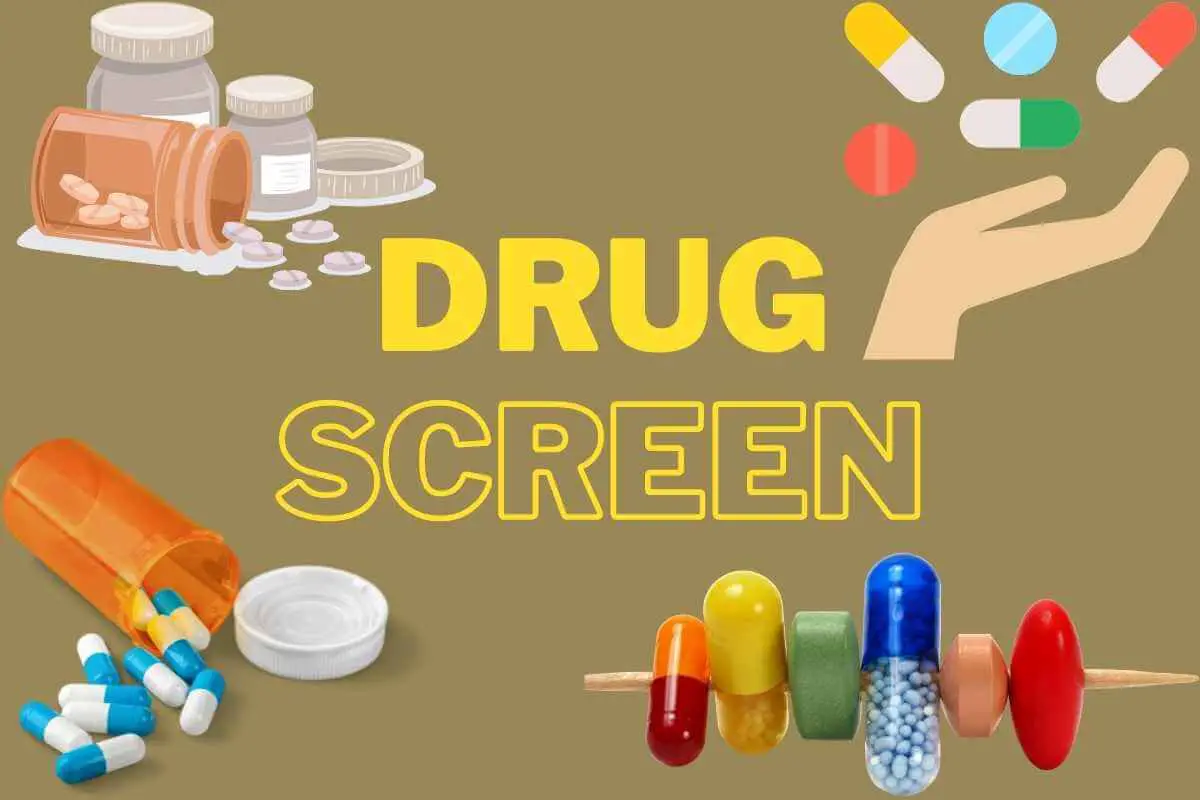Nursing home patients are considered at higher risk for overuse or abuse of controlled substances. Medical providers need to be diligent in monitoring and care of these residents.
Many nursing home patients come to the facility post-surgery on higher-dose narcotics. They may be on these meds lifelong due to chronic issues as well. Dementia creates risk due to impaired ability to communicate drug effects.
Nursing home patients can be tested for illicit drugs and to confirm that they are taking prescribed medications. They can have the test done by collecting a blood sample or a urine sample.
There are other ways to test for narcotics, but blood and urine are the two most common ways to test in the nursing home setting.
It is reasonable to avoid ordering tests if they will not change a patient’s management. If you wouldn’t change their medication treatment plan, then don’t order the test.
When to Test for Nacotics in the Nursing Home?
Drug testing may be of importance in the management of patients:
- With known or suspected diversion of medication for substance use disorders.
- Who present in-person to a treatment facility with symptoms and signs of intoxication or withdrawal.
- With a self-reported or otherwise identified overdose.
- With significantly unstable opioid and/or other substance use disorders.
Testing for confirmation is important when you have a patient not responding to treatment or concerned about diversion.
According to SAMSA, drug testing for routine purposes is not recommended at this point.
What to Test
Testing patients can include the following:
- Amphetamines
- Barbiturates
- Benzodiazepines
- Opiates
- Marijuana
- Codeine
- Cocaine
- Carisoprodol
- Fentanyl analogues
- Methadone
- Meperidine
Testing for the presence of alcohol can be conducted by breath, saliva, blood, or other accepted testing methodology. To check out a list of common medications in the nursing home read this article (What are the commonly used medications in the nursing home?).
Discrimination
Federal law prohibits skilled nursing facilities from discriminating against protected classes. Show caution when deciding who you drug screen and never base it on their race, color, religion, age, sex, or other protected characteristic.
In other words, do not decide whether you drug screen people based on their race, color, religion, age, sex, or any other protected characteristic.
Nursing home residents have a right to be treated with dignity and respect.
Consent to Test
Usually, a medical provider does not ask a patient to consent before sending urine or blood for testing.
In most cases, it may be a good idea to let your patient know ahead of time that you will be testing them for controlled substances. This is done in hopes of maintaining trust and a solid patient/provider relationship.
There will be times when you are unable to review the reasons for the drug testing. In times like this, it will be vital that you discuss the results with them in a confidential manner and explain your reasoning.
Some insurances may not cover random drug screens, leaving the patient with a bill for the testing. If there is concern about diversion, abuse, or misuse, the prospect of a bill should not deter you from testing.
If a patient doesn’t consent to drug testing, use this as an opportunity to discuss addiction, treatment options, and coming up with an alternative treatment that doesn’t involve controlled substances.
Common Terms
Controlled Substance: A drug or other substance that the government controls because it may be abused or cause addiction. Controlled substances are regulated under the Controlled Substances Act.
Impairment: signs and symptoms of impairment include
-Physical: poor appearance/hygiene, sweating, headaches, tremors, diarrhea, restlessness, slurred speech, unsteady gait, etc.
-Psychosocial: mood fluctuations, inappropriate verbal or emotional responses, irritability, confusion, memory lapses, isolation, lack of focus, lying, etc.
-Performance: feeling sick frequently, errors in judgment, deterioration in performance, non-compliance.
Consent to Testing: The patient gives verbal or written consent for drug testing. They are not required in all states.
Federal Protections
Patients sometimes quote federal regulations, “Confidentiality of Alcohol and Drug Abuse Patient Records.” to prevent medical providers from ordering drug screens. These regulations were meant to protect patients in drug rehab programs, not nursing homes and medical offices.
In 1995, DHHS revised the definition of the kinds of “programs” subject to the regulations, making it clear that the regulations do not usually apply to a general medical care facility unless that facility (or person) “holds itself out as providing, and provides, alcohol or drug abuse diagnosis, treatment or referral for treatment” (42 CFR §2.11).
In most primary care settings, these federal protections regarding drug screening do not apply but consult an attorney. These rules cross into a gray area if a health care practice includes someone whose primary function is to provide substance abuse assessment or treatment and if the practice benefits from “Federal assistance.” In this case, the facility must comply with Federal law and regulations and implement special rules for handling information about patients who may have substance abuse problems.
False Positive Drug Test in Nursing Home
Practitioners need to be aware of false-positive drug screens when testing the patients in the nursing home. Sometimes the drug screen can pick up the substances that are part of the drug, triggering a false positive.
San Diego-based “Biosite,” the company that makes the widely used screening test, confirmed Protonix is one of two medications that their test can mistake for marijuana.
Even eating poppy seeds can cause a positive morphine or codeine test when using older testing methods. What out for all those poppy seed bagels. However, results usually only last for a day after eating poppy seeds in high enough quantity. Phentermine could raise a false red flag in your drug screen if you don’t have a medical reason for taking amphetamines. WebMD
If you are testing for alcohol, be aware that many types of mouthwash contain ethanol and could cause a positive test for ETOH.
Other drugs that may cause false-positive results to include but are not limited to:
- Rifampin
- Sertraline (Zoloft)
- Cannabidiol (CBD)
- Diphenhydramine
- Efavirenz (Sustiva)
- Quetiapine (Seroquel, Seroquel XR)
- Chlorpromazine
- amantadine (Osmolex ER)
- bupropion (Wellbutrin XL)
- ibuprofen, naproxen, tolmetin (NSAIDs)
- Labetalol and Verapamil
- Promethazine (Phenadoz, Promethegan)
- trazodone (Desyrel)
Medical providers should be aware that specific metabolites of drugs can be misinterpreted as another controlled or illicit substance.

Calling the laboratory and speaking with one of the laboratory experts can help separate the cause of the positive reading.
Illness requiring Treatment
Patients suffering from alcohol abuse and substance abuse in the nursing home setting, just like in the community. Addiction arises out of treatable illnesses such as chronic pain and trauma.
Patients receive treatment with chronic pain meds such as oxycodone, Dilaudid, and fentanyl which can lead to abuse when caution isn’t shown.
When treating patients with long-term or even short-term opioids, medical providers will sometimes order drug screens that confirm that the patient is taking the medication as prescribed.
Early Identification and Treatment
Early intervention and support improve the success of coming off narcotics or benzodiazepines. Sometimes staff will not know that the patient is abusing drugs or controlled substances while in the nursing home.
The same patients getting pain medications or other medications with abuse potential could be abusing controlled substances. Laboratory testing could help identify these patients early in their addiction.
- Encourages patients to seek help if they are concerned that they may have a drug or alcohol problem.
- Encourage patients the utilize support services such as AA or NA.
- Refer to psych service provider covering the nursing home.
Conclusion
Drug testing in the nursing home setting can be beneficial, especially with chronic management of controlled substances such as opioids, benzos, and methadone/suboxone.
Providers must protect the privacy of the patient. It is advised that the clinician document using a minimalist approach and use neutral terms.
Show caution when discussing the drug screen results, especially if a positive test for illegal substances. If referring for additional support services, make sure to get the buy-in from the patient before sharing medical information.
Once you obtain the drug screening result, always try to get permission from the patient before releasing the results to other parties such as law enforcement, lawyers, and other medical providers. When in doubt, consult your attorney.
The same medications used to treat everyday ailments such as pain and anxiety can just as easily be misused. These medications need to be appropriately administered and monitored before they do more harm than good.
This Clinical Guidance (“Guidance”) is provided for informational and educational purposes only. It is intended to provide practical clinical guidance to addiction medicine practitioners and others caring for individuals with substance use disorders.
References:
American Society of Addiction Medicine. ADJUSTING DRUG TESTING PROTOCOLS. 2021
https://www.asam.org/Quality-Science/covid-19-coronavirus/adjusting-drug-testing-protocols
Assistance. HCAHealthcare. https://careers.hcahealthcare.com/pages/lewisgale-substance-abuse-policy Retrieved August 5, 2021
A Guide to Substance Abuse Services for Primary Care Clinicians. Appendix B—Legal and Ethical Issues
M.K.Brooks, Esq. https://www.ncbi.nlm.nih.gov/books/NBK64825/ Retrieved August 5, 2021
F. F.Amura, I. Mdala, K. Engedal & J. Straand. (2020) BMC Geriatrics. Variation between nursing homes in drug use and in drug-related problems. https://bmcgeriatr.biomedcentral.com/articles/10.1186/s12877-020-01745-y retrieved on August 5, 2021
Impairment – Drugs and Alcohol. 2020. https://ohsguide.worksafenb.ca/topic/impairment.html Retrieved August 5, 2021
Nursing Home Residents Test Positive For Marijuana. 2002. https://cleartest.com/blog/latest-news/nursing-home-residents-test-positive-for-marijuana retrieved on August 5, 2021
https://www.asam.org/Quality-Science/covid-19-coronavirus/adjusting-drug-testing-protocols. retrieved on August 5, 2021
The ASAM Appropriate Use of Drug Testing in Clinical Addiction Medicine (Part 4). https: //www.asam.org/Quality-Science/quality/drug-testing
Can a Drug Test Lead to a False Positive? https://www.drugs.com/article/false-positive-drug-tests.html Retrieved August 11, 2021


